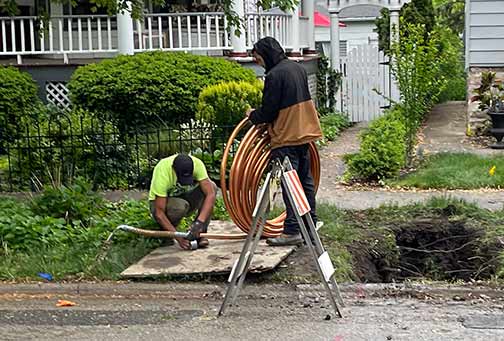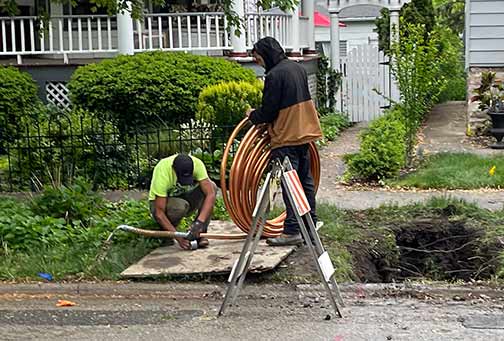
Lead water pipes have been banned in the US since the 1980s, notes Invest West Management. Yet many Chicago homes and offices still have them in their plumbing. What are the dangers of having lead water pipes in your building, and how can you remove these toxic metal pipes?
The problem of lead in water was first addressed in 1986 with an amendment to the Safe Drinking Water Act. Although this law prohibited the use of lead pipes for providing drinking water, it did not force cities to replace existing lead water pipes.
As a result, most of Chicago’s lead water pipes were never removed. Before the ban, Chicago’s city code required the use of lead service lines, which meant that several Chicago buildings had lead water pipes in their plumbing.
Even today, Chicago has more lead water pipes than any US city, with an estimated 400,000 lead pipes serving around 2.7 million people. These lead pipes pose an enormous health risk to the city’s people, especially children.
The dangers of lead water pipes
The principal danger of lead water pipes is that lead can leach into drinking water, causing “lead poisoning.” Even in tiny amounts, this heavy metal causes major health problems, and this is why there are no safe levels of lead exposure.
What are the health implications of using lead water pipes?
- Young children and pregnant women are particularly susceptible to lead poisoning.
- In young children, lead poisoning can cause brain and nervous system damage.
- Lead poisoning has a lifelong impact on cognitive development, neurological function, and IQ levels.
- In adults, lead poisoning is linked to kidney damage, high blood pressure, and cardiovascular problems.
Do you have a lead service line in your home?
To check if the water pipes in your home are made of lead, follow these steps:
How old is your home?
If your home was built before 1986, the chances of having lead water pipes are high (because that was the standard in Chicago then).
Check your home’s records
To replace the main water line in a home, you need a permit. Check to see if a building permit was ever issued for replacing your water lines.
Inspect the service line
If the service line is accessible, you can examine it to see if it is made of lead. Use the following steps to test the exposed portion of the pipe.
- Scrape the pipe surface with a coin. If it is easily scraped, it could be made of lead.
- If the exposed surface (after scraping the pipe) is dull gray, it could be lead.
- Try sticking a magnet to the pipe to see if it adheres. If it doesn’t, it is likely lead pipe.
Have the line inspected professionally
To remove all doubt, have a plumber check your plumbing. Even if your service line is not made of lead, you may have a lead gooseneck. Since goosenecks are hidden from view, it makes sense to have a plumber inspect the entire plumbing.
Test your drinking water
Lastly, you may want to have a certified laboratory test your drinking water to see if it has lead. Remember that there are no safe exposure limits for lead.
What should you do if you have lead water pipes in your home?
If lead water pipes are in your home, the best solution is to replace them. To start the process, contact your local water utility or health department for information on how to do this. You never know. You may even qualify for some financial assistance.
That is because Chicago has a program that offers limited free lead pipe replacement for low-income families and other qualified applicants. Also, the city recently started to replace lead pipes if they break. There may be other programs you can take advantage of.
In the interim, however, what can you do to protect your family from lead poisoning?
Run your water before using it
Before drinking or cooking, run the water for a few minutes. That will remove water that has been inside the pipes for several hours. If your service line is very long, this step won’t help much.
Clean faucet aerators regularly
Tiny pieces of lead can break away from the pipes and get trapped inside your faucet. Cleaning the aerator often will get rid of the debris.
Use cold water
Lead dissolves faster in hot water than in cold water. Use only cold water for drinking and preparing baby formula.
Install a lead filter
While waiting to remove the lead water pipes in your home, consider getting a water filtration system that is certified to remove “total lead.”
Finally, you need a professional plumber with experience handling lead water pipe issues to advise you on the best approach to your lead service line replacement.

